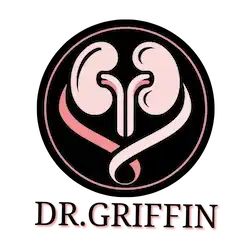Your kidneys are two bean-shaped organs. They sit on either side of your spine, just below your ribs.
Their main jobs are:
- Clean the blood by removing waste.
- Keep the balance of water, salt, and minerals.
- Help control blood pressure.
- Make red blood cells.
- Keep bones strong.
Without good kidney care, all these important jobs can slow down or even stop.
Why Should You Care About Kidney Health?
You may not think about your kidneys much. But when they get sick, it can lead to serious problems like:
- Swelling in hands and feet
- High blood pressure
- Weak bones
- Heart disease
- Even death
Taking kidney care is easier than fixing them later. Prevention is key.
How to Know If Something’s Wrong
Many kidney problems are silent at first. They sneak up without causing pain. Some signs that your kidneys may be in trouble are:
- Feeling more tired than usual
- Swelling in your ankles, feet, or face
- Peeing too much or too little
- Blood in your urine
- Foamy urine
- Dry and itchy skin
- Trouble sleeping
What Causes Kidney Problems?
There are many things that can hurt your kidneys, including:
- Diabetes: Too much sugar in your blood damages kidneys over time.
- High blood pressure: Extra pressure harms tiny blood vessels in the kidneys.
- Infections: Kidney infections can scar the kidneys.
- Drugs: Overusing painkillers like ibuprofen can hurt kidneys.
- Genetics: Some people are born with kidney diseases.
Key Takeaways:
- Watch for early signs like tiredness and swelling.
- Keep an eye on conditions like diabetes and high blood pressure.
How Do Doctors Find Kidney Problems?
If your doctor thinks there’s a problem, they may do:
- Blood Tests: A blood test checks how well your kidneys are cleaning your blood.
- Urine Tests: A urine sample checks for protein or blood.
- Imaging Tests: Tests like an ultrasound can show if kidneys look damaged.
- Biopsy: In some cases, doctors take a tiny piece of kidney tissue to look at under a microscope.
Key Takeaways:
- Simple blood and urine tests can find problems early.
- Regular checkups help catch kidney issues before they get worse.
How Are Kidney Problems Treated?
Good kidney care depends on what’s wrong and how bad it is. Treatment may include:
- Lifestyle changes: Eating better, moving more, drinking enough water.
- Medicines: Pills can control blood pressure, diabetes, or swelling.
- Dialysis: A machine can clean your blood if your kidneys stop working.
- Kidney transplant: A new kidney may be needed if the old ones fail completely.
Simple Steps You Can Take:
- Follow your doctor’s advice.
- Take your medicines exactly as prescribed.
- Eat a kidney-friendly diet (less salt, sugar, and processed food).
- Stay active but don’t overdo it.
- Stop smoking.
Key Takeaways:
- Early treatment can save your kidneys.
- Healthy living helps your kidneys heal and work better.
How to Protect Your Kidneys
Taking care of your kidneys is about small smart choices every day. Here’s how you can protect them:
- Drink water: Stay hydrated but not too much.
- Eat smart: Choose fruits, vegetables, and lean protein.
- Move your body: Exercise keeps blood pressure in check.
- Control blood sugar: Especially if you have diabetes.
- Watch your blood pressure: Take your meds if needed.
- Limit salt: Too much salt makes kidneys work harder.
- Avoid smoking and heavy drinking: Both harm kidneys.
- Don’t overuse painkillers: Only take them when necessary.
Key Takeaways:
- Everyday habits make a big difference.
- Prevention is easier than cure.
What’s the Future Like With Kidney Problems?
If you catch kidney issues early and take good care of yourself, you can live a full, happy life. Many people with kidney disease stay healthy for years by:
- Eating right
- Taking medicines
- Checking with doctors regularly
- Staying active
However, if you ignore symptoms or wait too long, problems can get worse. Severe kidney failure can mean dialysis or a transplant.
Positive Steps:
- Early care leads to better health.
- Stay hopeful — small steps every day really help.
Key Takeaways:
- Kidney disease can be managed well if caught early.
- Hope and healthy habits go a long way.


